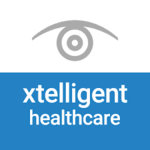All Research Sponsored By:XtelligentMedia Healthcare

-
Predicting the leading analytics and AI trends in healthcare for 2025
Identifying the value proposition of analytics technologies and establishing AI governance frameworks will be key for healthcare organizations in 2025.
-
Overview of the life sciences sector in 2025: What's coming up?
A 2025 life sciences industry outlook report identifies several focus areas, including digital transformation, competitive pressures, business volatility and evolving customer needs.
-
10 high-value use cases for predictive analytics in healthcare
Predictive analytics can support population health management, financial success, and better outcomes across the value-based care continuum.
-
A digital tool for patient engagement reduces childhood obesity
The digital patient engagement tool reduced early childhood obesity prevalence among kids at the highest end of BMI scales.
-
How generative AI is reducing administrative burden in healthcare
Over 90% of healthcare workers feel optimistic about the promise of generative AI in healthcare to alleviate administrative burdens, according to a new survey.
-
Top data analytics tools for managing chronic disease
Effective chronic disease management requires healthcare stakeholders to effectively utilize data, population health management systems and predictive analytics tools.
-
Wearable AI technology assists in identifying medication errors
A wearable, deep learning-driven camera could help healthcare providers proactively identify potential errors prior to medication delivery with 99% accuracy.
-
Exploring emerging breast cancer screening technology
New breast cancer screening tools, ranging from 3D mammography to AI-assisted screening analysis play a critical role in the evolving breast cancer screening landscape.
-
Has the cost of healthcare been impacted by hospital price transparency?
Data indicates that hospital price transparency laws have caused healthcare costs to level off.
-
Examining how cyberattacks affect patient care
Surveyed healthcare security practitioners reported several negative effects of cyberattacks on patient care, including patient safety and care delivery risks.
-
5 challenges to EHR implementation and solutions overcoming them
EHR implementation is no small feat, but being aware of common challenges can help prepare healthcare organizations for successful health IT deployments.
-
Outlining 11 typical types of medical mistakes and patient harms
Understanding the most common types of medical errors might help tailor patient safety best practices.
-
Hurricane Helene causes a shortage of IV fluids and dialysis
Following Hurricane Helene, damages to a manufacturing plant in North Carolina and subsequent nationwide IV fluid shortages have forced manufacturers to mobilize global networks.
-
Microsoft increases its analytics and AI capabilities in healthcare
New Microsoft Cloud for Healthcare offerings will focus on multimodal foundation models, data integration, healthcare agent services and nursing workflow improvements.
-
Analyzing the mid-revenue cycle and successful strategies
The mid-revenue cycle includes coding, CDI, and compliance, making its processes vital to a provider organization's success.
-
Nine best practices for an effective EHR implementation
Successful EHR implementation requires meticulous planning, strong communication and effective training to navigate complexities and ensure a smooth transition.
-
14 million patients impacted by breaches in healthcare data in 2024
Healthcare organizations remain top targets for cyberthreat actors, according to a SonicWall threat brief that explored trends in healthcare data breaches.
-
What distinguishes Medicare Parts A, B, C, and D from one another?
Medicare includes four different segments that each insure a wide variety of services and supplies for enrollees.
-
The use of gene and cell therapy to advance medicine
Cell and gene therapy is transforming medicine by offering potential cures for untreatable diseases, but navigating scientific and regulatory hurdles remains challenging.
-
Six components that comprise patient engagement and access to care
Patient access to care relies on ample appointment availability, digital health access and facility accessibility.
-
Brain pressure monitoring could be enhanced by a deep learning tool
A deep learning tool that uses routinely collected data could provide a noninvasive method for clinicians to monitor intracranial hypertension in intensive care patients.
-
The majority of small practices claim that primary health IT providers are inadequate
According to a KLAS report, many small practices report that their core health IT vendors lack key functionalities beyond EHR and practice management, including telehealth.
-
Recognizing serious diseases spread by mosquitoes
Common mosquito-borne illnesses, such as Zika virus, West Nile virus, Chikungunya virus, dengue, and malaria, pose public health threats for various communities.
-
How ambient AI can enhance the interaction between patients and providers
Ambient AI technology is helping Ochsner Health improve patient-provider relationships by allowing clinicians to spend consultation time looking at their patients rather than a computer screen.
-
Hospitals get $2.9B increase in Medicare inpatient pay
HHS finalized a rule that will increase Medicare inpatient payments by 2.9% in FY 2025, among other new payment policies.